(Posted by Ray Pennings)
It’s late – a long Wednesday at the Calvin 500 conference has passed and I am feeling exhausted although edified by this day. The morning started with five academic papers as usual. Dr. George Knight led off with a paper on “Calvin as New Testament Exegete” which for a good portion, was an informative survey paper Calvin’s NT work concluding with some observations about the strengths and weaknesses of this work for use in the church today. The next two papers complemented each other well. Dr. R. Scott Clark spoke on “Calvin’s principle of Worship.” He was followed by Dr. Terry Johnson who read a paper written by Dr. Hughes Old on “Preaching as Worship in the Pulpit of John Calvin.” Both papers raised many profound insights, too many to atttempt to summarize here. Two samples:
“Piety in godliness is the result of attendance at public worship, preaching and the sacraments. It is meaningless to speak of righteousness without religion of which public worship is the highest expression. To avoid or neglect this is spiritual theft.” (wording not exact, but my notes from Clark.)
On the place of the sermon in the liturgy of the sevice, “There is a doxological intention in preaching. Preaching is both an answer and a call to prayer. The word is an answer to prayer and the prayer is an answer to the word. The sacrament is like a signature on a letter or a seal on a charter. That is why the sacrament should be administered without preceding word. Without the word preceding the sign, the sign has no meaning.” (wording not exacdt, but my notes from Olds.)
Dr. Henri Boucher followed with a paper on “Calvin the Frenchman” in which he documented the French influences in the life of Calvin and suggested some implications and Dr. William McCormish on “Calvin’s Children” in which he quite masterfully demonstrated the scope of Calvins influence, both from a geographic and sphere perspective.
Following the monring session, a number of us had the priviledge of touring the Reformation Museum. This evening was a time for worship again following a similar format as the previous evenings, but this time using a liturgy that was derived from John Knox’s 1556 Form of Prayers.
The first sermon this evening was on Ephesians 1:3-14 enttiled “Election” by Rev. Geoffrey Thomas. He expounded the text with five points:
1. Election is a simple doctrine to understand. A useful illustrative narrative between a pastor and parishoner who was confused about election was used to make his point.
Pastor – How are you saved? Parishoner – By God’s grace.
Pastor – Did God save you or did you save yourself? Parishoner – God did.
Pastor – Did He do so on purpose or by accident?
2. We should not have small or shrinking thoughts of God’s election. He has saved a great multitudes of His people.
3. God chose multitudes because He loved them. “We cannot speak of God without speaking of Him as being in love with His people.”
4. The teaching of election effects us by (a) humbling us; (b)encouraging us; (c)providing support for evangelism; (d) making us courageous.
5. How can we know we are elect? We know our election by having Christ. “A faith as thin as a spiders thread, in Christ, will carry us across the fire.”
The second sermon was delivered by Dr. Joel Beeke on Matthew 16:18b entitled “Cherishing the Church.” Dr. Beeke opened by outlining the opposite extremes of “absolutism and clericalism” (which he identified with a Roman Catholic view of the church) and “a “subjectivism and individualist” view of the church (which he identified with modern evangelicalism.) He suggested that the teaching of Matthew 16:18 provided us the key for a balanced and biblical view. He expounded his text using three points.
1. The Status of the Church as Belonging to Christ. It is His by gift from the Father, by promise, and by purchase. Dr. Beeke powerfully described the price paid on Golgotha as the “dowry price” for the church, asking with the words of Calvin: “If Christ cherished the church that he died for her, is it too much to ask his followers to live for her?” But not only did Christ die for her, He lives for her (referencing the work of His intercession) and He sends out preachers to gather her.
2. The Substance of the church founded on Christ. Noting that a great deal of blood and ink had been spilt over the meaning of the phrase “on this rock I will build my church”, Dr. Beeke dealt with the theological controversy briefly and then proceeded to use the biblical imagery of stones and a building to describe the church. Christ Jesus is the chief cornerstone; the teaching of the apostles are built upon that cornerstone; and all believers are become living stones, fitly framed together into a glorious structure. Listening to this in a majestic stone cathedral, the imagery was especially powerful. Dr. Beeke challenged his audience always to keep this identity of the church in mind, noting that even though the church may appear at times to be aging and failing, she remains the bride of Christ and we should not abandon our mother.
3. The success of the church as the workmandship of Christ. He noted how the church has a wonderful indestructability; how she is a wonderful institution; how her members have a wonderful individuality; how she has a wonderful inheritance; and how she is able to give a wonderful invitation.”The church is not a closed society, or you and I would never have been able to join.”
The final sermon of the evening was delivered by Dr. Martin Holdt on Psalm 110. He noted how this Psalm is rarely preached on, in spite of it being quoted 27 times in the New Testament, surmising that it is due to the difficult subject matter of God’s sovereign judgment on His enemies. Yet it is a Messianic psalm, and with a verse-by-verse exposition, Dr. Holdt worked through the truths of the sovereignty of God as it will bring down the enemies of God and bring all of the elect safely home.
Throughout the day, there was much to edify as well as challenge the mind and, when combined with the interesting conversations with fellow-beleivers around the globe, which reminds one of both the joys and challenges of the Christian life, I go to bed with my mind and heart having been filled at the smorgasboard feast that was offered in the day, and looking forward to the final day of this special conference tomorrow.
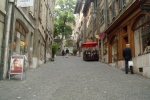
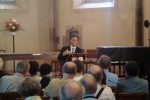
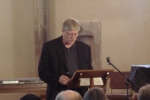
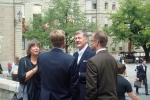

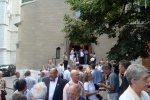
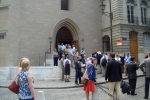
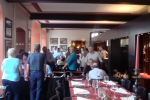
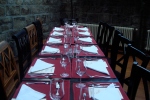
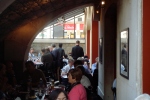
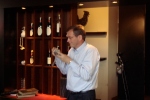
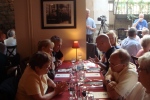
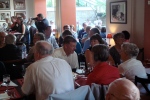
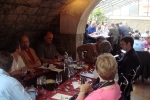
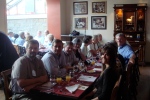
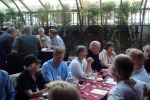

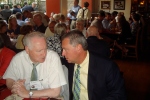
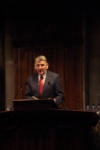
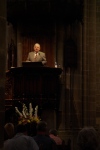
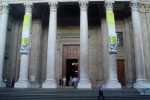
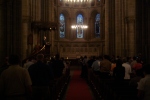
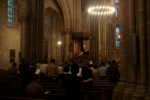
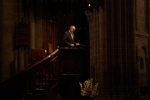
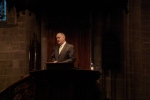
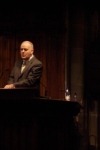
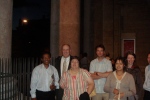

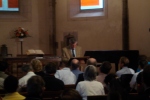
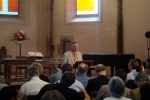
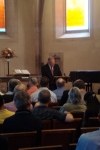
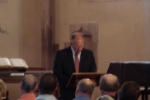
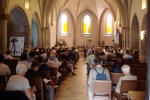
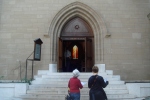
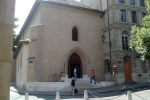
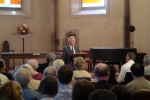
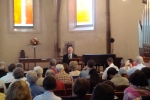
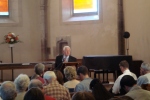
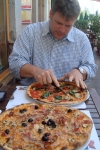
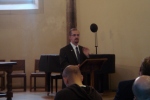
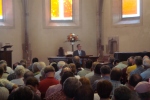
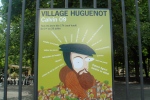
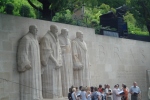
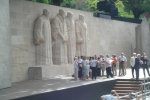

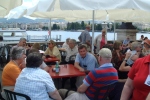
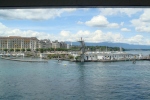
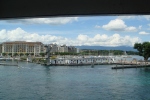
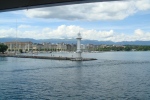
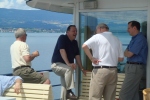



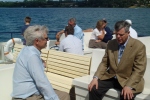
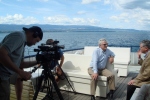
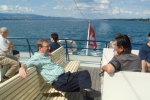
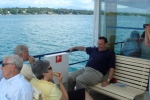
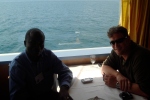
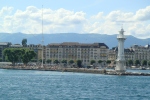


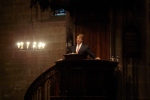




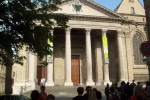
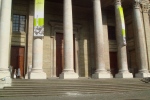
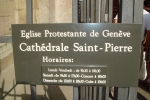
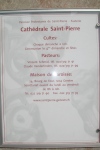
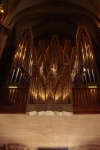
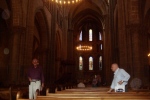
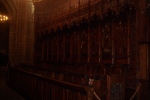
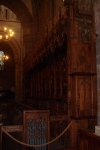
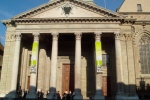
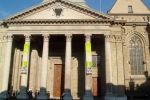
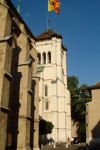
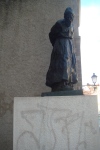

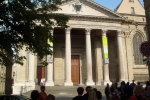
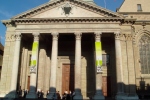
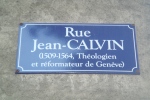
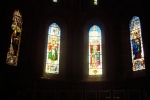
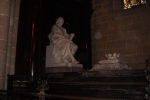



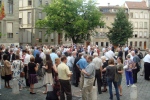
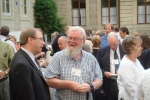
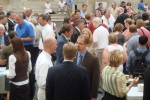
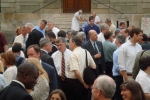
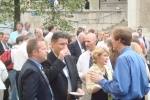
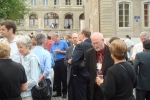
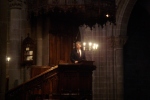
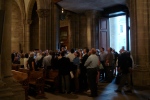


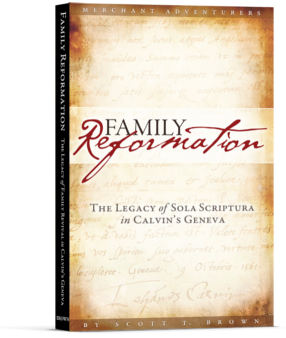

Recent Comments